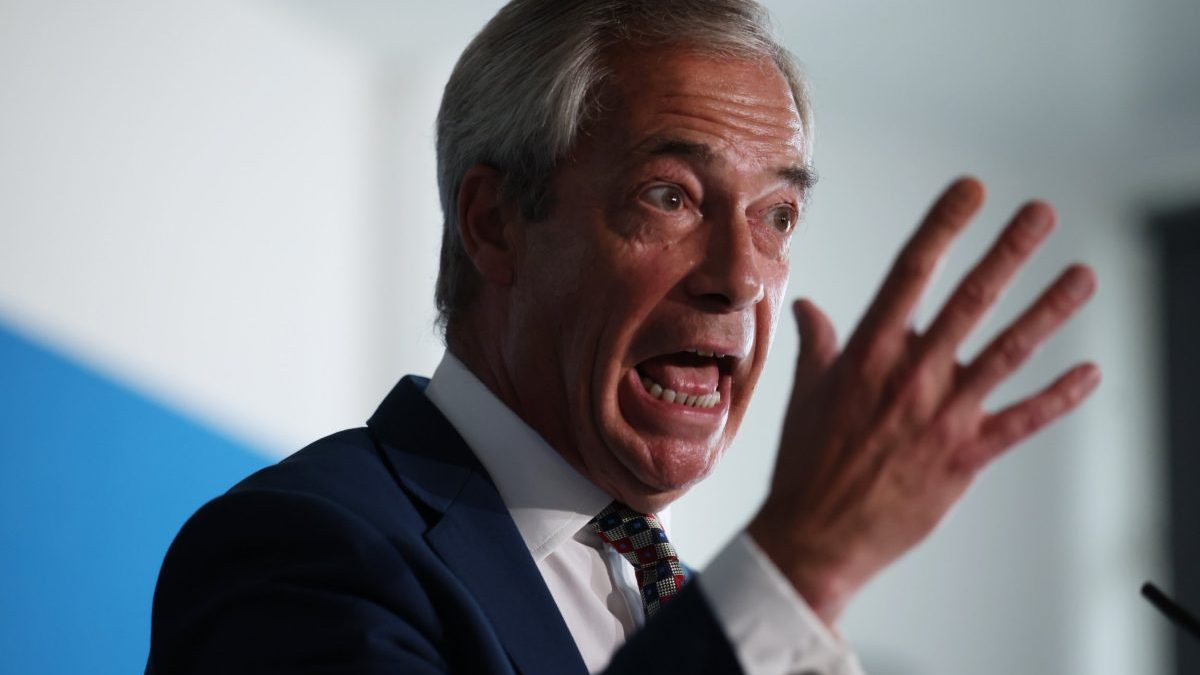His remarks come after former Labour leader Neil Kinnock suggested Rachel Reeves should remove the VAT exemption on private healthcare
Rachel Reeves should ignore calls by Lord Neil Kinnock to charge VAT on private healthcare and instead do the opposite by giving people relief on their health insurance premiums, Nigel Farage has said.
The Reform UK leader claimed that high taxes were causing an “exodus” from Britain, and that Kinnock, who maintains his influence in Labour circles, had it “completely the wrong way around”.
On Sunday, The i Paper revealed comments by the former Labour leader, urging the Chancellor to remove the existing VAT exemption on private healthcare to help fund the NHS.
According to analysis by the Good Growth Foundation think-tank, extending 20 per cent VAT to acute private healthcare – excluding optician and dental appointments and work private hospitals carry out for the NHS – could raise more than £2bn a year.
Such a move would build on Labour’s decision to put VAT on private schools last January – but it could also prove controversial given NHS waiting lists have pushed people into paying for care even if they can only just afford it.
Kinnock said that ending the VAT exemption on private healthcare was a “reasonable and widely supported step” which would raise “vital funding for the NHS and social care”.
It was the second major intervention by Kinnock aimed at shaping the Budget in autumn, with the Labour grandee also urging Reeves last month to consider a wealth tax.
On Monday, The i Paper asked Farage about Kinnock’s proposal at Reform’s latest press conference on the theme of crime.
The Reform leader said that instead of increasing tax on private healthcare, the Government should cut it.
“Rather than putting VAT on premiums that you pay to private healthcare, perhaps if we gave people a bit of tax relief on paying for private health care, we might just relieve the pressure on the National Health Service,” he said.
“I think they’ve got this all completely the wrong way around.”
While most private healthcare is currently exempt from VAT, people are required to pay Insurance Premium Tax (IPT) of 12 per cent on health insurance premiums.
If Reform wanted to make private healthcare more attractive, the party could pledge to cut the rate of IPT.
Another option would be to grant tax relief for private medical insurance. In the 1990s, the Conservative government introduced such a relief, which could be claimed for premiums relating to people aged 60 or over. However, it was scrapped by Labour when it came to power in 1997.
On Monday, Reform’s deputy leader, Richard Tice, said there should be a 20 per cent tax relief to “encourage more away from the NHS so easing pressure” – a policy which was included in Reform’s general election manifesto last year.
Farage claimed that current tax policy and talk of further hikes were driving people to leave the UK.
He said: “Why don’t we get everyone to emigrate? You know the talk of wealth taxes. I mean, can you not see what’s happening?
“There is an exodus from this country of high taxpayers, there is an exodus from this country of young people who are not yet big earners, but many of whom are the entrepreneurs of the future.”
Reports suggesting high taxes have led to an “exodus” of wealthy people leaving the UK remain disputed.
Farage added that “54 private schools have closed this year already”, following Labour’s VAT move. On average, about 50 private schools close each year for a range of reasons.
On Monday afternoon, YouGov published a snap poll on whether Britons would support or oppose charging VAT on private healthcare.
The poll of 6,642 adults in Great Britain found that 43 per cent opposed the move, with 31 per cent in support.
Downing Street refused to be drawn on Monday about whether it would consider Kinnock’s idea. The Prime Minister’s Official Spokesman said: “We never talk about tax policy outside of a fiscal event. That’s one for the Chancellor.”

